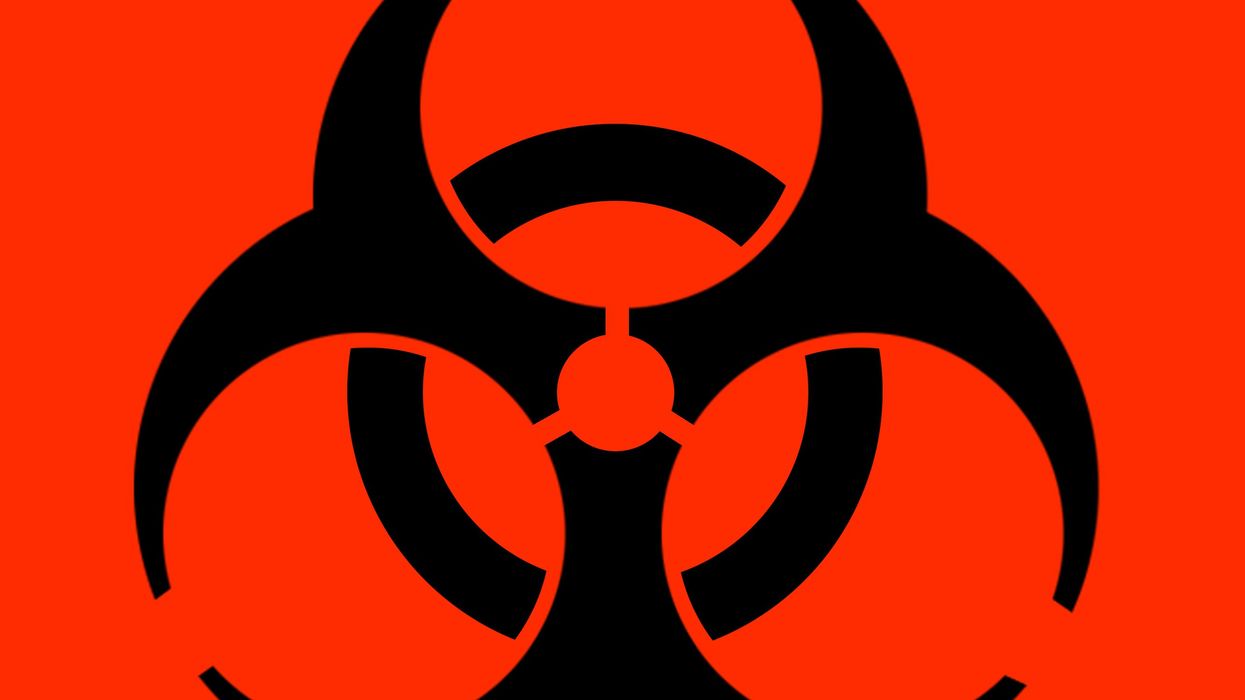
Photo by Smith Collection/Gado/Getty Images

Plague is the latest in a series of long-forgotten or controlled diseases that have made a comeback in recent years.
The plague swept through medieval Europe, killing between 30% to 50% of the population — up to an estimated 200 million people. While the bacterium responsible, Yersinia pestis, is found in rodents, it can be transmitted to humans through the bite of infected fleas. Between humans, it can be spread through unprotected contact with an infected person's bodily fluids or through inhalation of respiratory droplets expelled by someone stricken with the pneumonic plague.
Outbreaks of Yersina pestis were responsible for numerous nightmarish epidemics — not only the Justinianic plague in the 5th-7th centuries and the 14th century Black Death, but also in modern times, largely in Asia and Africa. According to the World Health Organization, the three most endemic countries are Madagascar, Peru, and the Democratic Republic of the Congo.
Public health officials in Pueblo County, Colorado, confirmed Tuesday that a resident was infected with the plague.
Officials did not disclose the identity of the infected person.
'If you develop symptoms of plague, see a health care provider immediately.'
The Pueblo Department of Public Health and Environment advised locals to:
Alice Solis, program manager of the county's office of communicable disease and emergency preparedness, said, "If you develop symptoms of plague, see a health care provider immediately. Plague can be treated successfully with antibiotics, but an infected person must be treated promptly to avoid serious complications or death."
Infection is brutal and frequently lethal. Systemic infection caused by the bacteria in the bloodstream and lung-based forms have a case-fatality ratio ranging from 30% to 100% if not treated.
Symptoms vary depending on the variety of plague.
According to the Centers for Disease Control and Prevention, those infected with the bubonic plague — which is not spread person to person — develop swollen, tender lymph glands as well as fever, headache, and weakness.
Those with pneumonic plague, which is contagious and spread through the air, suffer chest pain, high fever and chills, a cough, difficulty breathing, and an upset stomach. If untreated, the disease can lead to lung failure, shock, and death inside 24 hours.
When plague bacteria multiply in the blood leaving a patient with septicemic plague, the patient is likely to suffer similar symptoms as well as profuse bleeding.
The U.S. does not presently have a plague vaccine available for use. However, streptomycin, gentamicin, the tetracyclines, and chloramphenicol are reportedly all effective against pneumonic plague.
Although infections are extremely rare, plague occurs naturally in areas of the western United Sates. For instance, it is endemic throughout the Sierra Nevada mountains and other parts of California, where it is often carried by squirrels and chipmunks.
Other once-eradicated or controlled diseases have made a comeback in recent years, in part as a result of unchecked illegal immigration.
Blaze News previously reported that cases of polio, tuberculosis, leprosy, and malaria have cropped up amid record influxes of illegal aliens as well as refugees and asylees — whom the CDC indicated are not required to meet vaccination requirements before entering the country.
Like Blaze News? Bypass the censors, sign up for our newsletters, and get stories like this direct to your inbox. Sign up here!